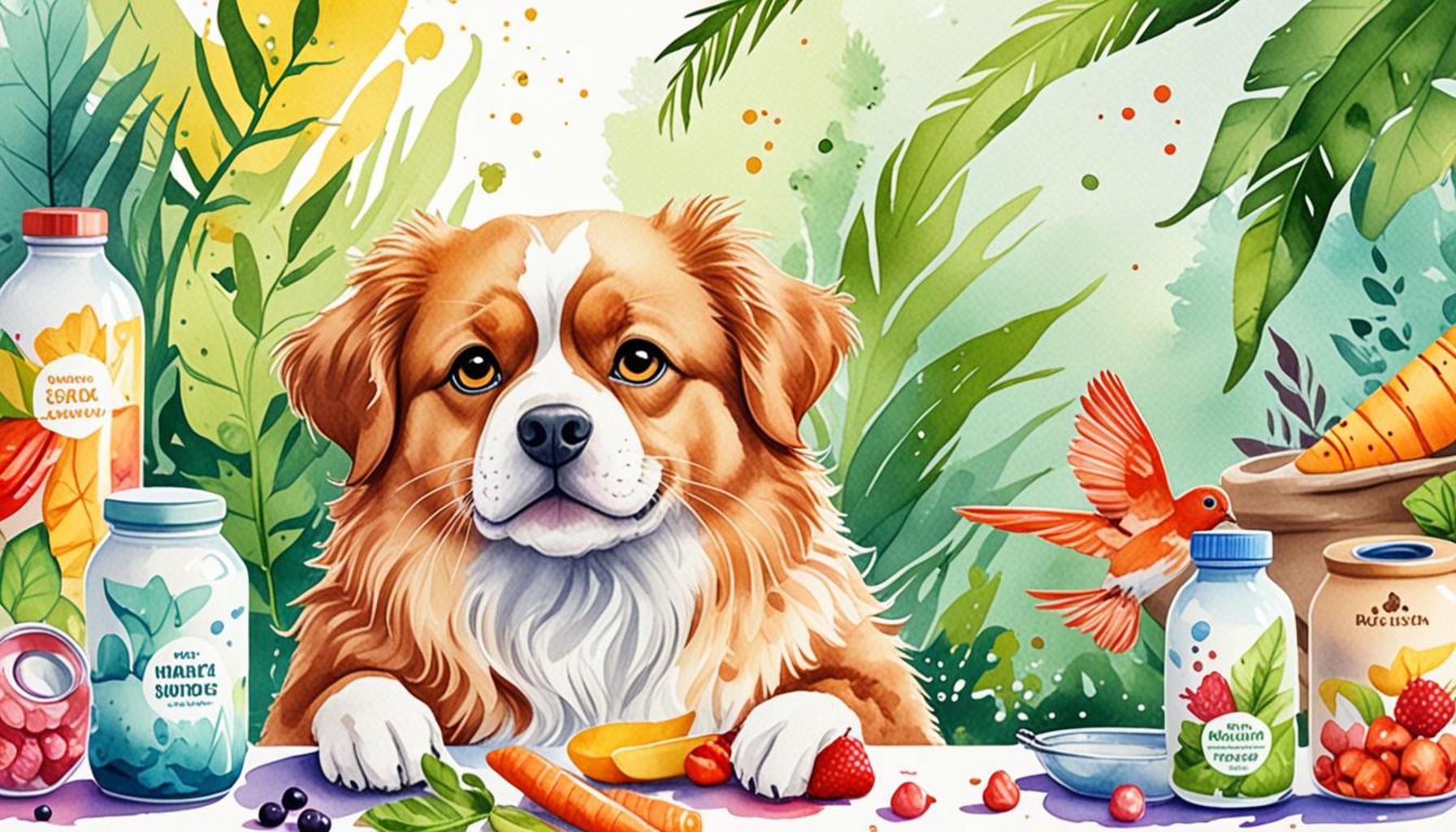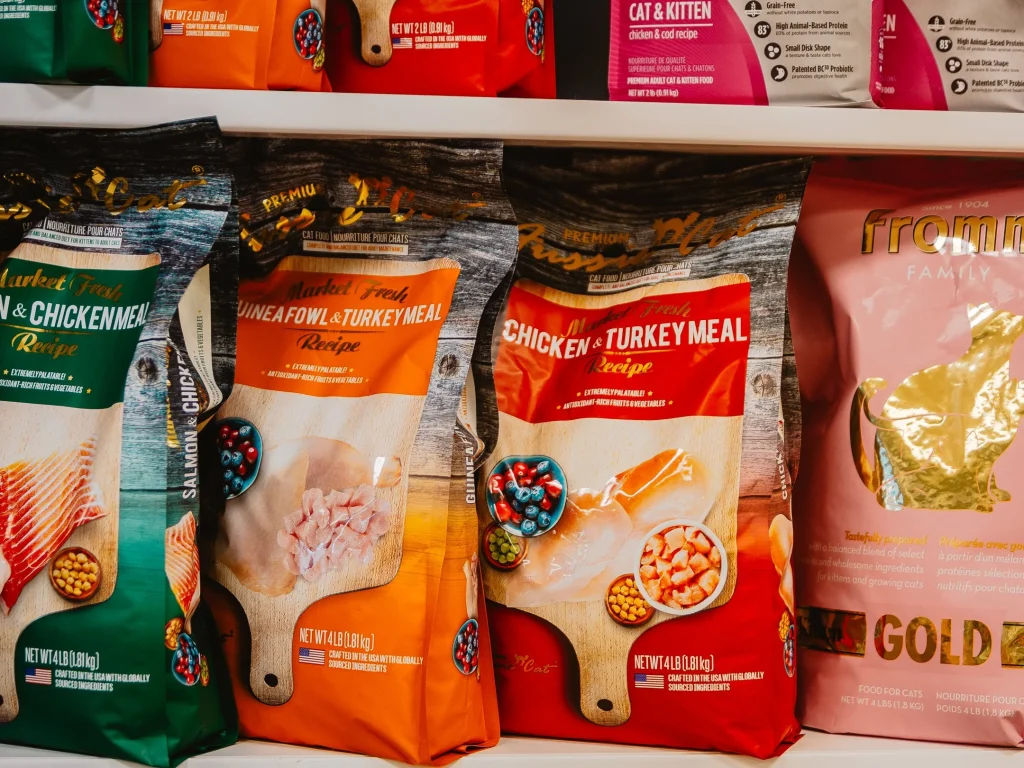How Natural Food is Transforming Pet Supplies

Transforming Pet Nutrition
In recent years, a significant shift has occurred in the world of pet supplies. Pet owners are becoming increasingly aware of the impact of nutrition on the health and well-being of their furry companions. This newfound consciousness has propelled the demand for natural food, leading to transformative changes across the industry.
Key Drivers of Change
- Health Consciousness: Pet owners are prioritizing natural, wholesome ingredients, mirroring trends in human diets. Just as consumers are opting for organic produce and free-range meats, they are now looking for similar attributes in their pets’ diets. Brands that offer grain-free, high-protein, or raw food options have witnessed a surge in popularity. For instance, products that boast of being free from artificial preservatives and fillers are frequently flying off the shelves, reflecting a broader understanding of nutrition’s important role.
- Relationship with Pets: Many view pets as family members, pursuing nothing short of the best for their loved ones. This shift in perspective has led owners to seek out foods that not only satisfy their pets’ nutritional requirements but also contribute to overall wellness. The notion of pet “wellness” has transcended basic feeding into realms such as mental health, energy levels, and longevity.
- Ingredient Transparency: There is a rising demand for products that disclose their sourcing and contents. Pet parents are increasingly scrutinizing labels for information about the origin of ingredients. Brands that offer transparency, such as single-source protein diets or local ingredient sourcing, are becoming favored choices. This consumer scrutiny has prompted many companies to enhance their labeling and marketing efforts to establish trust and credibility.
This paradigm shift is spurring innovation across various sectors, from traditional pet foods to gourmet options, and even dietary supplements. Brands are now crafting products with clean, recognizable ingredients, often going to great lengths to ensure quality. Consider options like grain-free kibble, organic treats, and raw diets, which are becoming staples in many households. Various companies are creating recipe-specific foods made for specific breeds or health conditions, showcasing an increasing personalization trend in pet nutrition.
Market Impact
The natural pet food market has significantly expanded, with projections indicating a multi-billion dollar industry. Reports suggest it could surpass $24 billion by the end of 2026 as pet owners continue to prioritize health over price and convenience. As more brands pivot to offer these products, the choices available to pet owners continue to grow. This evolving landscape promises not just healthier pets but also a reevaluation of how pet supplies are developed and marketed. Retailers are responding by dedicating more shelf space to premium nutrition products, even experimenting with in-store education initiatives that help consumers make informed choices. The ongoing growth in this sector signifies a fundamental rethinking of how we care for our animal companions, emphasizing a lasting trend towards nutrition-focused pet ownership.
DISCOVER MORE: Click here to learn about the latest trends
Embracing Natural Ingredients
The transformation in pet food supplies is largely fueled by a growing appreciation for natural ingredients. Pet owners are increasingly recognizing that the food their animals consume dramatically affects not only their physical health but also their emotional well-being. This shift toward natural and wholesome nutrition has influenced how manufacturers formulate their products, resulting in an abundance of options that prioritize health and quality over mere convenience.

Types of Natural Pet Foods
As pet owners seek more informed and responsible choices for their beloved companions, various categories of natural pet food have emerged, catering to diverse needs and preferences. These include:
- Grain-Free Options: Many pets suffer from food allergies or sensitivities, and grain-free diets have become an appealing alternative. By eliminating grains like corn and wheat, companies are providing more protein-rich foods that help support a pet’s energy levels and digestion.
- Raw Diets: The raw food movement emphasizes feeding pets uncooked meats, bones, fruits, and vegetables. Many proponents argue that this closely mimics the natural diet of carnivorous animals, providing optimal nutrients and promoting healthier skin and coats.
- Organic Treats: Treats made with organic ingredients are on the rise, aligning with the broader movement toward sustainability and chemical-free products. These treats often boast minimal processing and are free from artificial additives, making them appealing to conscientious pet owners.
- Specialized Diets: Tailored meals that cater to specific breeds or health concerns have seen increased demand. With conditions like obesity and allergies becoming more prevalent, companies are designing nutrition plans that cater to unique dietary needs, providing pet owners with tailored solutions.
This movement toward natural sourcing has prompted significant changes in the formulation of pet foods. Companies are increasingly emphasizing quality over quantity, focusing on creating products with fewer, well-sourced ingredients. Consumers are now more inclined to research and connect with brands that uphold their values of transparency and accountability, seeking out those that offer insights into ingredient sourcing and production methods.
A Future Built on Natural Choices
The ongoing evolution of pet food reflects larger societal shifts regarding dietary consciousness and wellness. As the marketplace increasingly caters to an informed audience, brands are recognizing the necessity of aligning products with animal welfare and health consciousness. Stores are also adapting, introducing education initiatives such as pet nutrition seminars, informational panels, or in-store tastings, paving the way for customers to make informed decisions about what they feed their furry family members. This commitment to natural food products signifies not just a trend, but an essential redefining of pet ownership towards an ethos that prioritizes quality nutrition in line with current consumer wellness values.
| Category | Details |
|---|---|
| Natural Ingredients | Organic and natural ingredients are on the rise, providing pets with the nutrition free from harmful additives. |
| Health Benefits | Pet supplies featuring natural food can potentially reduce allergies and improve digestion. |
| Sustainability | Using eco-friendly packaging and sustainable sourcing for pet foods is gaining traction and attracting environmentally conscious consumers. |
| Variety | Diverse options such as grain-free, limited ingredient, and raw diets are becoming common, catering to diverse pet dietary needs. |
| Consumer Education | An increase in transparency about ingredients is encouraging pet owners to choose more healthful options, fostering better pet care. |
Integrating natural food into pet supplies is not just about nutrition; it’s a comprehensive approach that benefits pet health, promotes sustainability, and aligns with emerging consumer values. As awareness grows, pet owners are increasingly inclined to invest in products that improve their pets’ wellbeing while also being environmentally responsible.
DISCOVER MORE: Click here to learn about the latest trends
Health Benefits and Consumer Awareness
The demand for natural pet food has been further propelled by an increasing awareness of health benefits associated with natural diets. Numerous studies and anecdotal evidence suggest that pets fed high-quality, natural foods may enjoy longer, healthier lives, experience fewer skin and digestive issues, and have higher energy levels. This realization has made pet owners more discerning about the products they choose, leading to a surge in companies that emphasize transparency and traceability in their ingredient sourcing.
The Role of Labels and Certifications
In response to the heightened scrutiny from consumers, many brands have adopted clear labeling practices that showcase their commitment to quality. Labels featuring terms such as “USDA Organic,” “Non-GMO,” and “Human-Grade” have gained traction, giving pet owners a sense of security regarding what they are feeding their pets. Furthermore, organizations like the Association of American Feed Control Officials (AAFCO) and the National Animal Supplement Council (NASC) provide independent certifications that validate brands’ claims, further solidifying consumer trust.
Additionally, due to recent concerns regarding pet food recalls and safety, consumers are more inclined to prioritize brands with positive track records. Trust in manufacturing practices is proving to be a crucial factor as companies strive to educate pet owners about the quality of ingredients used in their products. This emphasis on safety and quality is revealing a fascinating interaction between consumer demand and corporate transparency, creating a more informed purchasing environment.
The Push for Sustainable Practices
The movement toward natural pet food is intertwined with broader discussions on sustainability and eco-friendliness. Many brands are not only focusing on the health of pets but are considering the environmental impact of their production processes. This includes utilizing sustainable packaging materials, sourcing ingredients from responsible farms, and adopting eco-friendly manufacturing techniques. Pet owners are increasingly drawn to brands that reflect their own values surrounding sustainability, making eco-conscious brands standout in the marketplace.
Research shows that over 60% of American pet owners express interest in supporting environmentally responsible brands. As a result, companies are innovating by aligning their pet food products with sustainable practices, aiming to attract a growing niche market that values both pet health and environmental consciousness. This has led to the formulation of items such as plant-based protein diets and pet treats made from by-products of agricultural processes, showcasing a dual benefit of nutrition and reduced ecological footprints.
Technological Advances in Natural Pet Food
As the demand for natural pet supplies continues to grow, so too does the role of technology in creating innovative pet food products. Advances in nutritional science enable brands to develop enhanced formulations that meet the unique dietary needs of pets. For instance, nutrigenomics—the study of how nutrition affects gene expression—has opened doors to personalized pet diets based on genetic profiling. This trend toward customized nutrition is moving beyond merely catering to allergies or sensitivities; it’s about optimizing a pet’s overall health based on its genetic makeup.
Moreover, the rise of subscription services has created convenience for consumers eager to provide their furry friends with consistent access to natural products. Services that curate personalized boxes of natural foods and treats based on pets’ dietary needs have gained immense popularity, illustrating how technology is reshaping the retail landscape of pet supplies.
All of these factors combine to illustrate how the shift to natural food in pet supplies is not only a trend but a profound change in our approach to pet ownership. Encouraging responsible consumerism, health-focused formulations, sustainability, and technological innovation are harmonizing to create a new future for our furry family members.
DIVE DEEPER: Click here to uncover the myths and truths of breed adoption
Conclusion: Embracing the Natural Revolution in Pet Supplies
The transition toward natural pet food represents more than just a dietary trend; it signifies a major evolution in how we care for our pets. As pet owners become increasingly aware of the health benefits associated with natural diets, we see a notable shift in consumer preferences towards products that prioritize quality and transparency. This growing demand has compelled brands to adopt rigorous labeling practices and seek certifications that establish trust, as safety and ingredient integrity become paramount in consumer decision-making.
Furthermore, the alignment of natural pet food with sustainable practices reflects a deeper consciousness among pet owners regarding environmental stewardship. This dual focus on health and sustainability reshapes the marketplace, facilitating collaborations that favor eco-friendly production methods and socially responsible sourcing. As a result, innovative products are emerging that not only nourish our pets but also respect our planet.
With technology driving advancements in nutritional science, the future of pet food is leaning toward personalized and tailored solutions that cater to individual pet needs. This evolving landscape beckons pet owners to explore new possibilities and choices that can lead to happier, healthier, and longer lives for their furry companions.
As the natural food movement takes hold, it invites pet owners to be more informed and engaged in their purchasing decisions. By embracing this change, we not only enhance the health and well-being of our pets but also contribute to a more ethical and sustainable future. The journey toward a natural approach in pet supplies is just beginning, and it offers a promising horizon for both our pets and the environment in which they thrive.


